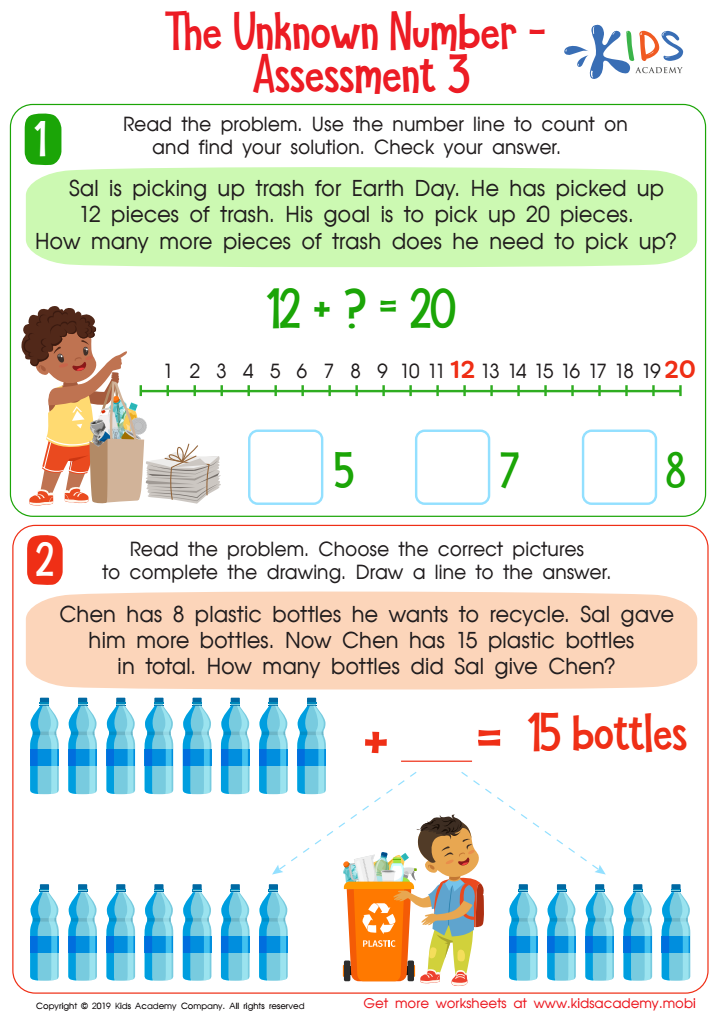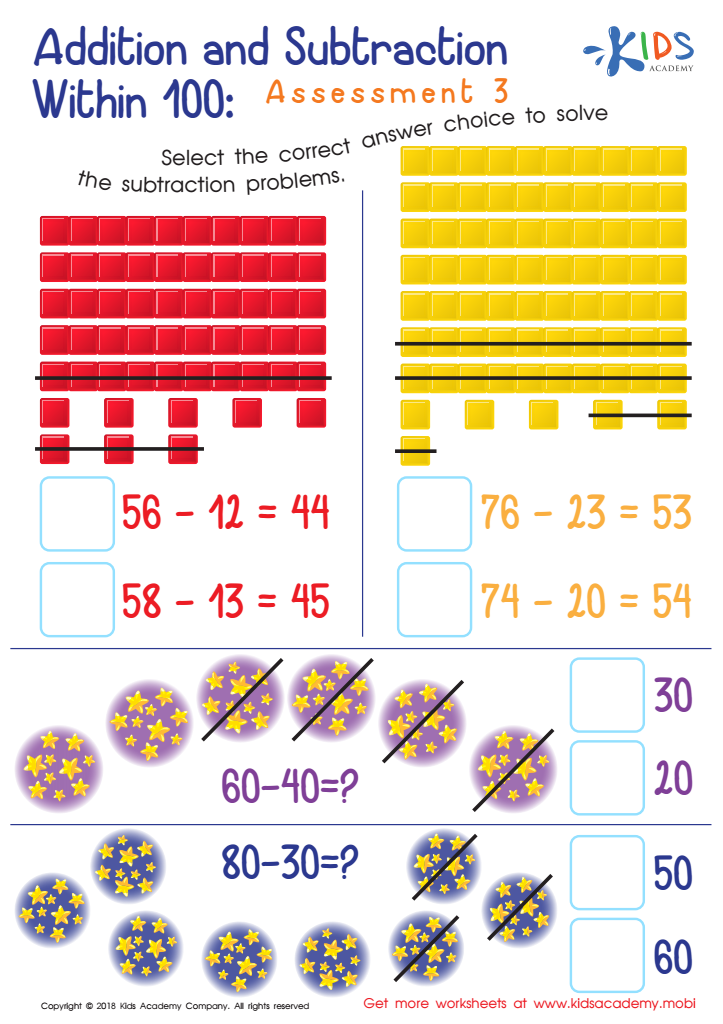Addition & Subtraction Worksheets Activities With Answers for Ages 3-9 - Page 2
26 filtered results
-
From - To


The Unknown Number - Assessment 3 Worksheet


Addition and Subtraction Within 1: Assessment 3 Worksheet
Parents and teachers should prioritize Addition and Subtraction activities for children ages 3-9, as these foundational skills are crucial for their cognitive development and mathematical fluency. At this age, children are naturally curious and eager to learn, making it the ideal time to introduce basic mathematical concepts through engaging activities.
These activities help to build a solid understanding of numbers, preparing children for more complex math later in their education. Additionally, they promote critical thinking and problem-solving skills. Parents and teachers can use varied methods, such as interactive games, visual aids, and real-life scenarios, to make learning fun and relatable.
Furthermore, having easy access to activities with answers aids in reinforcing learning and assessing a child's understanding. It allows for immediate feedback, encouraging students to reflect on their mistakes and learn from them, thereby fostering resilience and a positive attitude towards challenges.
Involving parents in their child's learning strengthens the home-school connection, ensuring consistent practice. Ultimately, by focusing on these foundational math skills, we empower children to feel confident and competent in their abilities, paving the way for their future academic success.
 Assign to My Students
Assign to My Students
















